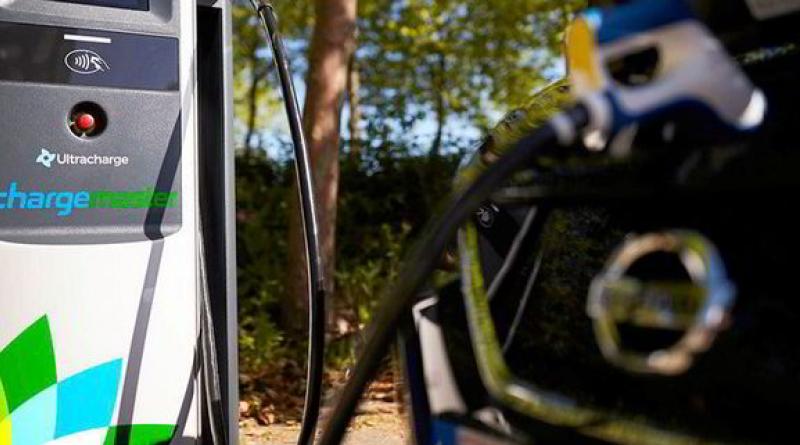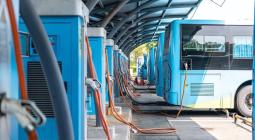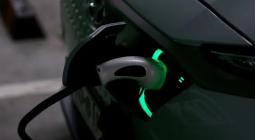'We'd be fools not to embrace it' | BP hits EV charging accelerator as boss defends integrated vision

CEO Looney says higher target reflects 'exponential growth' with chance to tap existing customers and offer outlet for green energy
BP raised its electric vehicle charging ambitions as a key outlet for future green energy production, as the oil giant's CEO said “we’d be fools not embrace the opportunity” of supplying its millions of customers as they transition to EVs.
The UK supermajor now wants to have 100,000 charging points globally by 2030, up from 70,000 previously envisaged, and boost power sold 100 times by the same date.
CEO Bernard Looney told financial analysts the group is increasingly convinced that charging will play a pivotal role in its plan to change into a transition-focused integrated energy company (IEC), with interests from North Sea offshore wind and hydrogen production to the service station forecourt.
“When you talk about the role of a company like ours in the transition… wouldn’t we absolutely want to take on that market,” said Looney, claiming 550 million people globally live within 20 minutes of a BP site.
“We were opening 115 charge points a week in the fourth quarter. We sold more power in December in China than we did in the [whole of] 2020. This is a business that is growing exponentially,” he said, with margins now roughly comparable between traditional fuel sales and EV charging.
Looney added: “We would be fools not to embrace this opportunity that’s been presented to us,” pointing out the dual attraction on forecourts of charging and BP’s thriving convenience retailing operation.
Its most recent foray into the sector came as recently as December when it acquired AMPLY Power, a US specialist in EV fleet charging.
The BP boss flagged charging as one area where an IEC can add value, defending a strategy that one analyst said had still not won over all investors.
“I think it’s becoming more and more apparent that there is a role for a [integrated] company like ours,” Looney claimed, pointing to the advantages “decades of history” gives BP in supplying, producing and distributing an energy transition products such as sustainable aviation fuel.
He added that in offshore wind “I spent a day in New York and heard a lot of talk [that] reminded me of the oil & gas days – permitting issues, local content issues, supply chain issues, maintenance, vessels – all these things we’re so used to”.
Renewables on track
The BP CEO spoke as he outlined the supermajor’s progress towards its renewables and energy transition targets that are among the most stretching globally.
The company said by the end of 2021 it had a 23GW net renewables pipeline on the way to its 50GW goal for 2030, dominated by offshore wind – where its most recent success came in January’s ScotWind round – and its Lightsource BP solar development joint venture, while it is also building positions in both green and blue hydrogen.
BP expects low-carbon energy, which includes renewables and hydrogen, still very much in their growth phases for the rest of the decade, to be delivering $2-3bn of earnings (Ebitda) by 2030. For context that compares to $9-10bn from its convenience and mobility operations and $30-35bn from its 'resilient hydrocarbons' oil & gas assets.
Quizzed by analysts over the rippling effect of supply chain inflation in its renewables business, BP executives said this was running as high as 30% in the polysilicon used in its solar operations, while the indications were much less severe in offshore wind, where its New York projects with Equinor are only just entering the key contracting phase and the picture should become clearer later in the year.
BP’s renewables operation is preparing for the arrival of heavy hitters from the rest of the green power industry. New gas & low carbon energy EVP Anja-Isabel Dotzenrath joins in March after leaving RWE last year, followed later in 2022 by former Orsted Asia chief Matthias Bausenwein, who will lead the supermajor’s offshore wind push.
BP also on Tuesday flagged plans to accelerate its carbon reductions plans, saying it is now aiming to reduce all greenhouse gas emissions from its operations, production and sales to net zero by the middle of the century, matching other oil and gas companies such as Shell.
Looney spoke as BP unveiled underlying replacement cost profit of almost $13bn for 2021, turning around a loss in 2020 driven by higher oil and gas prices and upstream production.
Those profits, along with a similar bonanza for fellow UK giant Shell, have sparked a political debate in Britain amid calls for a ‘windfall tax’ to help consumers bear the cost of soaring hydrocarbons.





